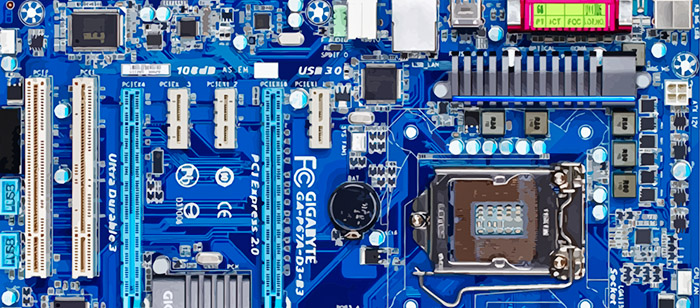
Reliability and Security in Modern Microprocessors
Naghmeh Karimi, Rutgers University
1:00pm 11:30am Wednesday, 9 March 2016, ITE 325b
The rapidly shrinking feature size and exponentially growth of the complexity of integrated circuits continue to give rise to various design robustness concerns, as well as the cost and complexity of semiconductors’ fabrication process making almost all semiconductor design companies outsource their fabrication to possibly untrusted third parties. Such globalization of IC design flow jeopardizes the security and trustworthiness of ICs and introduces new security vulnerabilities. Thereby, as the transistors pave their way towards miniaturization, reliability and trustworthiness of ICs and in particular microprocessors turn into major design constraints.
This talk will focus on robustness and security of microprocessors. It shows that applying generic robustness solutions for microprocessors, due to their high degree of application-level error masking, is cost prohibitive. The talk will explore how the workload-cognizant analysis of the impact of various malfunctions in modern processors effectively guides in identifying the most vulnerable functionality of the processors and developing robustness solutions for them. Then, the talk will focus on assuring the security of microprocessors and guarantying their proper functionality against malicious security vulnerabilities. In particular, the first physical attack that imposes processor malfunction through IC aging acceleration will be presented and the methods to prevent such attack will be discussed. Finally, security vulnerabilities of processor memory units using emerging memory technologies will be investigated and a hardware intrinsic encryption technique to assure the security of the stored data in such memories will be presented.
Dr. Naghmeh Karimi is currently a Teaching Assistant Professor at the ECE Department of Rutgers University. She received the Ph.D. degree in electrical engineering from University of Tehran in 2010 while conducting research for 2 years at Yale University as a visiting research assistant. She was a visiting researcher at Yale University (2007-2009), a postdoctoral researcher at Duke University (2011-2012), and a visiting Assistant Professor at New York University (2012-2014). Dr. Karimi’s research interests include hardware security and trustworthy ICs, Design-for-Security, Design-for-Reliability, Design-for-Testability, Computer Architecture and VLSI design and test. She has published over 30 papers in major journals and conference proceedings and authored three book chapters. She has also served as a program committee member for major international conferences in her area of research including the IEEE International Test Conference (ITC) and IEEE International Conference on VLSI Design.







